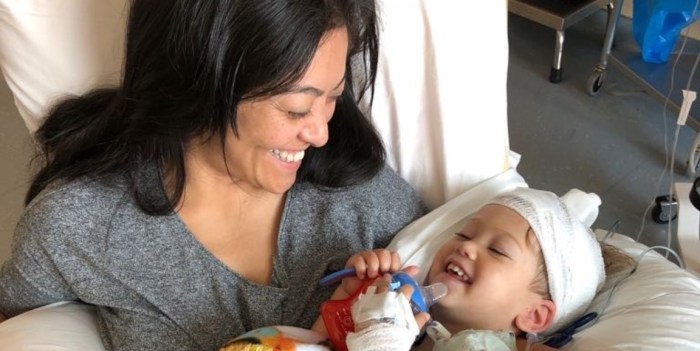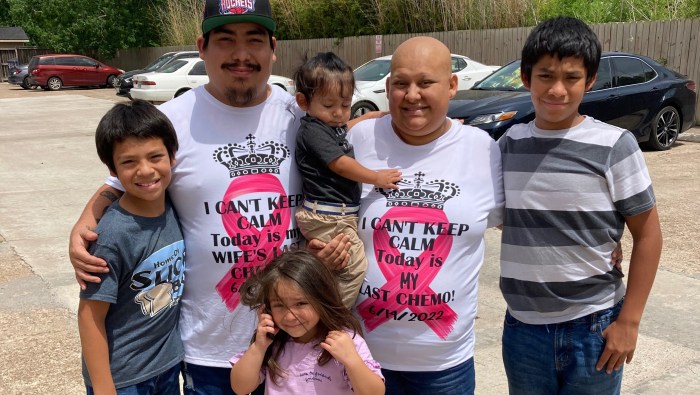Elaina has been diagnosed with a small brain tumor – Elaine’s recent diagnosis of a small brain tumor has brought forth a myriad of emotions and uncertainties. This condition, while challenging, requires a comprehensive understanding of its nature, potential implications, and available treatment options. As we delve into this topic, we aim to provide a thorough overview to empower Elaine and her loved ones in navigating this journey with knowledge and support.
Brain tumors, characterized by abnormal cell growth within the brain, can vary in size, location, and type. Understanding the specific characteristics of Elaine’s tumor is crucial for determining the appropriate treatment plan and prognosis.
Elaine’s Diagnosis

Elaine has been diagnosed with a small brain tumor. The tumor is located in the left frontal lobe and measures approximately 2 centimeters in diameter. It is a low-grade glioma, which is a type of slow-growing brain tumor.
Brain tumors can be caused by a variety of factors, including genetic mutations, radiation exposure, and certain chemicals. However, the exact cause of most brain tumors is unknown.
Symptoms and Impact
Brain tumors can cause a wide range of symptoms, depending on their location and size. Common symptoms include headaches, seizures, cognitive changes, and personality changes.
Elaine’s tumor is located in the frontal lobe, which is responsible for higher-level cognitive functions such as planning, decision-making, and problem-solving. As a result, Elaine may experience difficulty with these tasks. She may also experience headaches, seizures, and personality changes.
Treatment Options: Elaina Has Been Diagnosed With A Small Brain Tumor

There are a variety of treatment options available for brain tumors, including surgery, radiation therapy, and chemotherapy.
- Surgeryis the most common treatment for brain tumors. The goal of surgery is to remove as much of the tumor as possible without damaging surrounding brain tissue.
- Radiation therapyuses high-energy beams of radiation to kill cancer cells. Radiation therapy can be used before or after surgery, or as a standalone treatment.
- Chemotherapyuses drugs to kill cancer cells. Chemotherapy can be given orally or intravenously.
Prognosis and Recovery
The prognosis for brain tumors depends on a variety of factors, including the type, size, and location of the tumor. The prognosis for low-grade gliomas is generally good, with a 5-year survival rate of over 90%.
Recovery from brain tumor treatment can be a long and challenging process. Elaine may experience fatigue, cognitive difficulties, and emotional problems. However, with proper support and rehabilitation, she can learn to manage these challenges and live a full and meaningful life.
Emotional and Social Support

Elaine and her family will need a lot of emotional and social support during this difficult time. There are a number of resources available to help them, including support groups, counseling, and financial assistance.
- Support groupscan provide Elaine and her family with a sense of community and support. They can also provide information about brain tumors and treatment options.
- Counselingcan help Elaine and her family cope with the emotional challenges of a brain tumor diagnosis. Counselors can also provide support and guidance to help them make informed decisions about treatment.
- Financial assistancecan help Elaine and her family cover the costs of treatment and other expenses.
Palliative Care
Palliative care is a type of medical care that focuses on improving the quality of life for people with serious illnesses. Palliative care can help Elaine manage the symptoms of her brain tumor and improve her overall well-being.
Palliative care services can include pain management, symptom control, emotional support, and spiritual care.
FAQ Corner
What are the common symptoms of a brain tumor?
Headaches, seizures, cognitive changes, nausea, and balance issues are common symptoms.
What are the treatment options for brain tumors?
Treatment options include surgery, radiation therapy, chemotherapy, targeted therapy, and immunotherapy.
What is the prognosis for brain tumors?
Prognosis depends on factors such as tumor type, size, location, and the patient’s overall health.